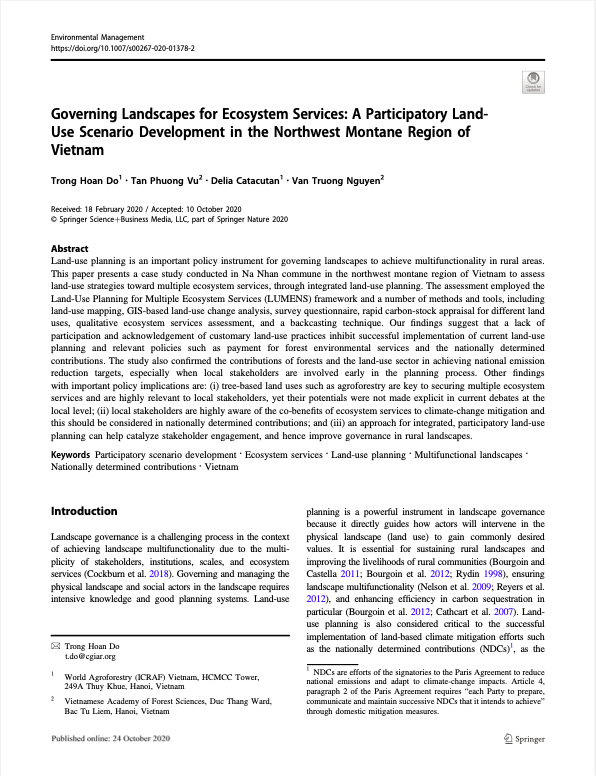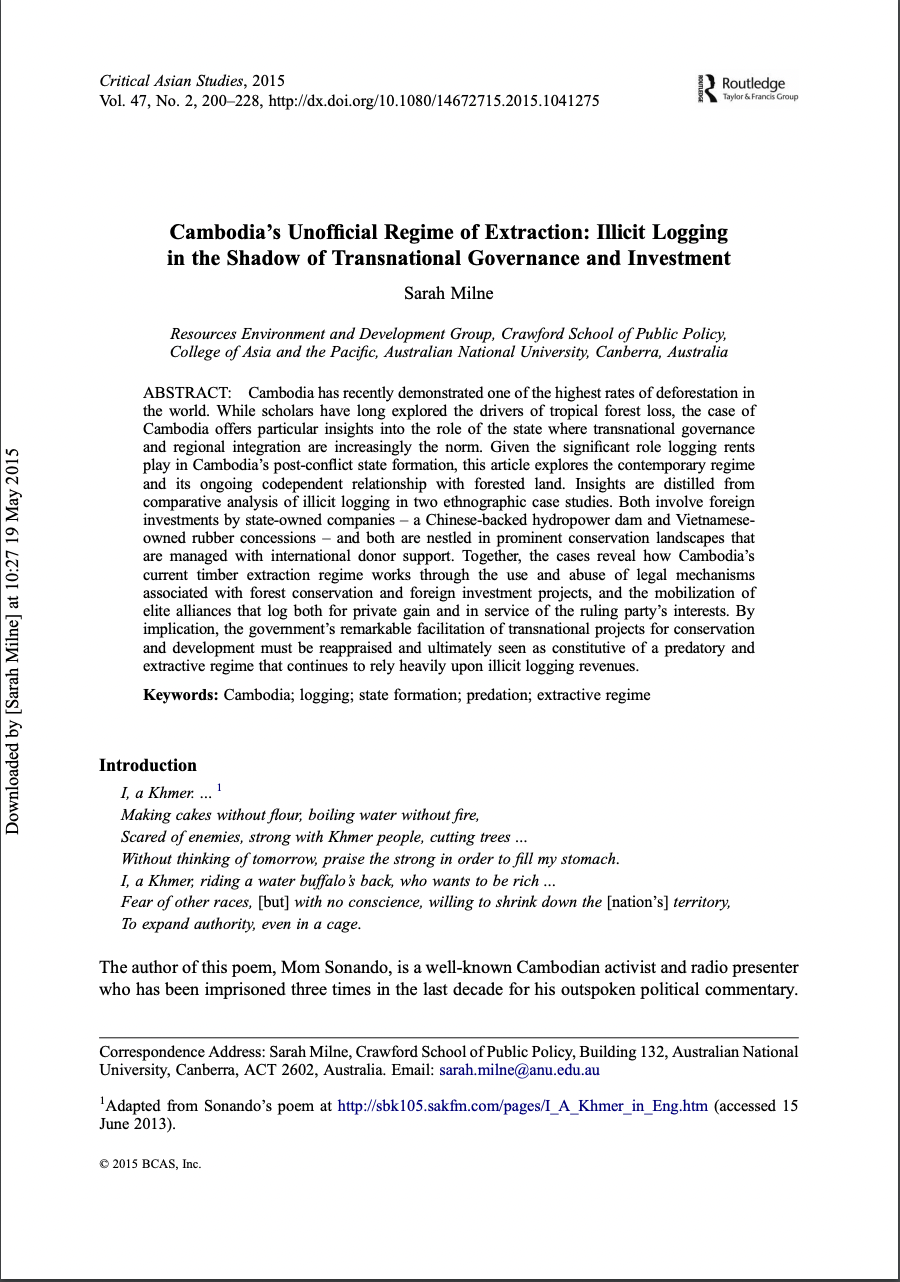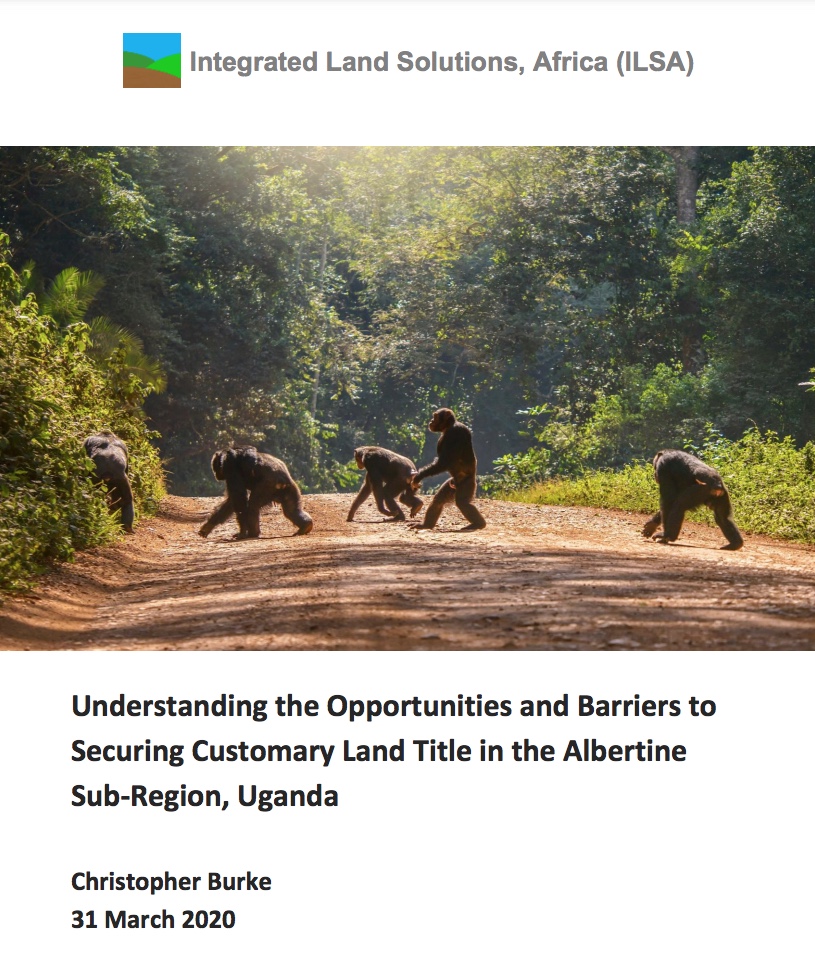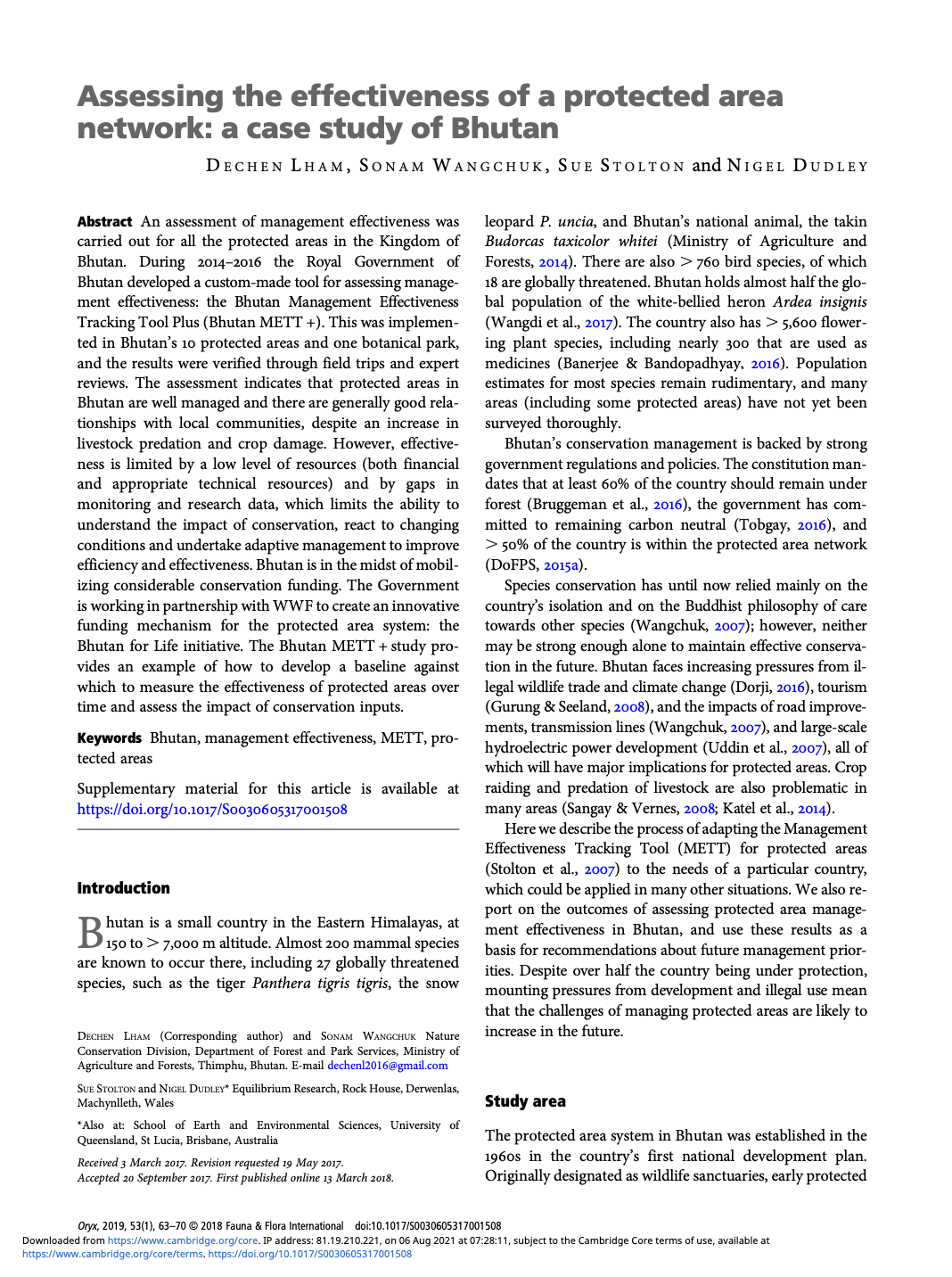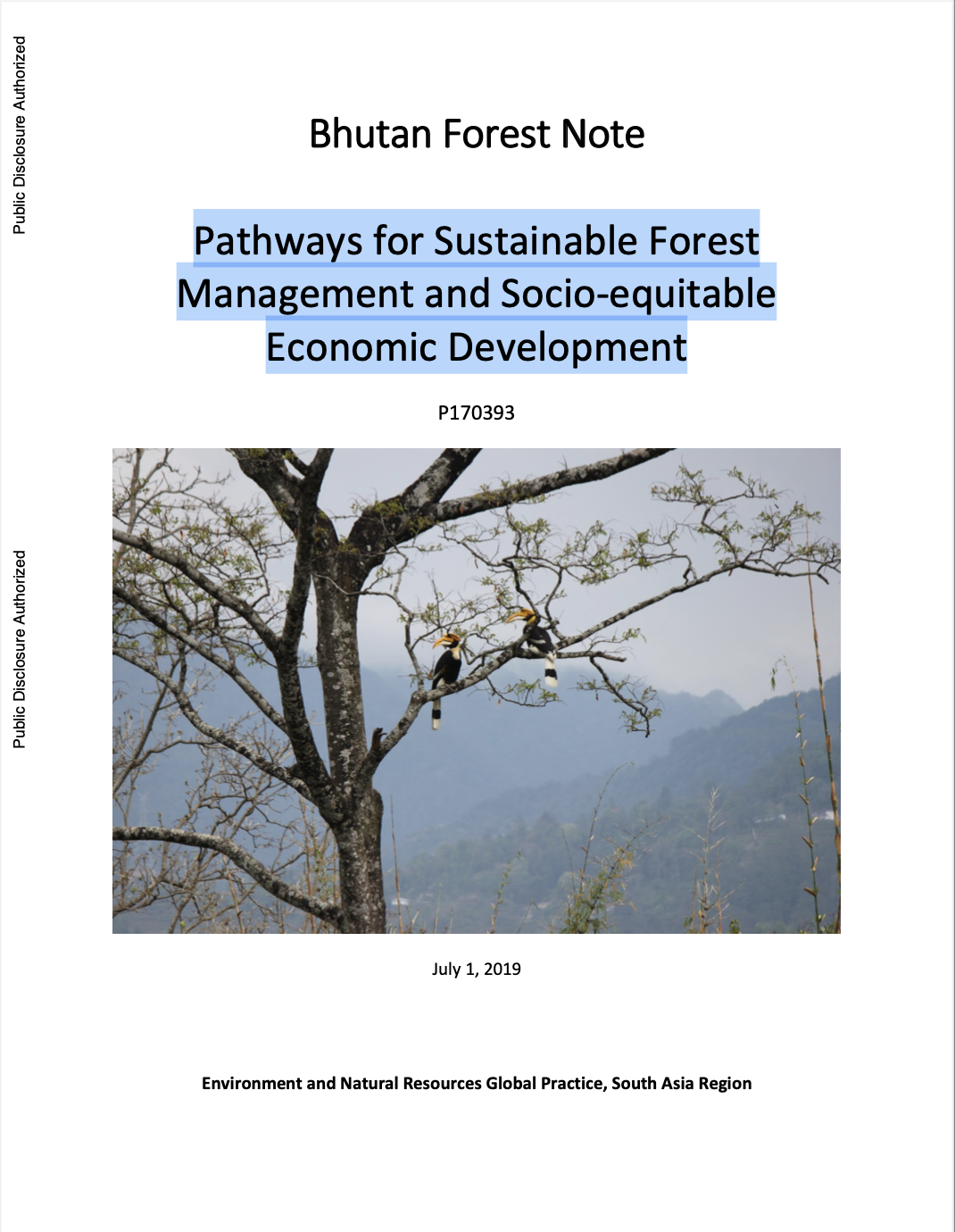Governing Landscapes for Ecosystem Services: A Participatory Land- Use Scenario Development in the Northwest Montane Region of Vietnam
Land-use planning is an important policy instrument for governing landscapes to achieve multifunctionality in rural areas. This paper presents a case study conducted in Na Nhan commune in the northwest montane region of Vietnam to assess land-use strategies toward multiple ecosystem services, through integrated land-use planning.

